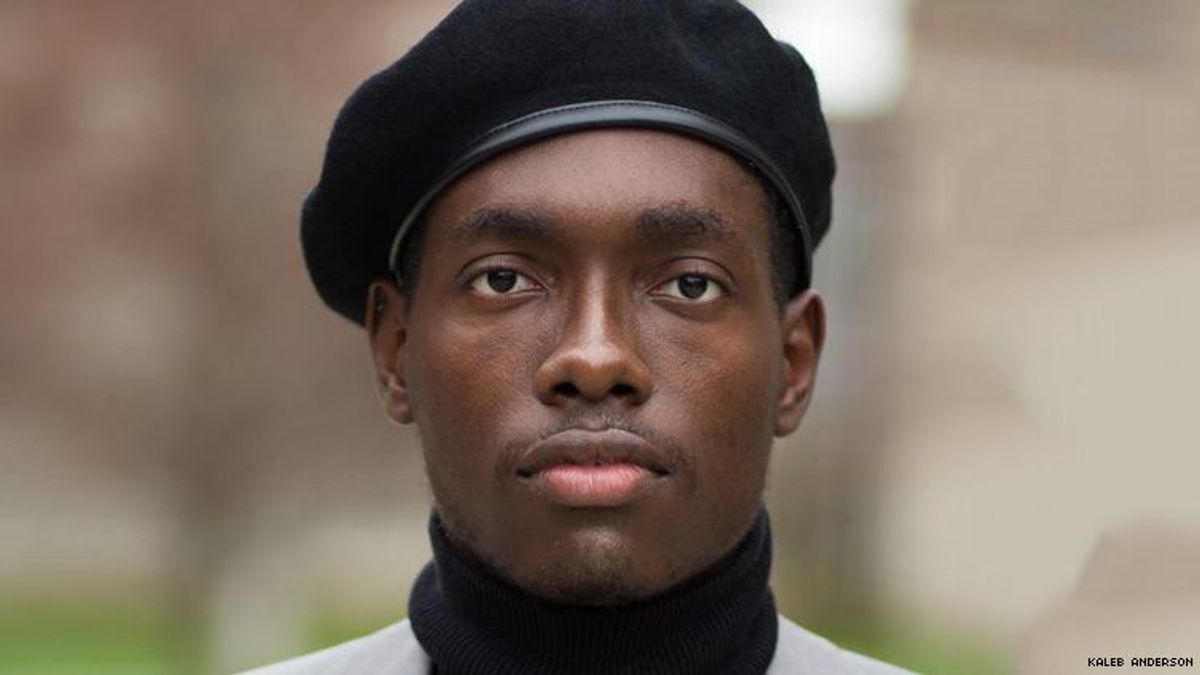Kaleb Anderson was diagnosed with HIV in his pediatrician’s office a few weeks before he headed off to college. He says years afterward were life-changing. “I know that’s how every person who has attended college describes their experience, but it’s the perfect way to say it,” College Anderson explains is “Life-changing is also loaded with sub-descriptors like trying, exhausting, and many times depressing. My campus, like many across the United States, mirrors the political and social climate; which in many ways has required me to work and resist harder.”

Since coming out poz, Anderson says, “I received both positive feedback from friends, mentors, and social media followers and strangers who resonated with my story. I was not prepared for the negative response I got from some of my family members. This past Thanksgiving, I visited my family in Cincinnati. I remember hearing the voices of my family as I walked up the steps of my great-grandmothers house with pans of baked beans and stuffing. Once I stepped into the house everyone went silent…. [I] dropped off the food in the kitchen. I spoke to one of my aunts and went in for a hug, only for her to slide back in her seat. … I would continue to get fake hugs, questions about my appearance, and family members not touching things after me.”
“I value my relationships with friends, mentors, and certain family members who have unconditionally supported me through this chapter of my life,” Anderson adds. “I charge any youth living with HIV to know that just because they are blood does not mean they are family and to surround yourself with people who will encourage and support you.”
Anderson has become an activist around issues of color, healthy sexuality, and HIV stigma. He’s spoken to fraternities and run for student government. He’s taken on the mantle of a “black, queer, HIV activist.” Recently, the 20-year-old finished his sophomore year at DePauw University where he’s a political science and Africana studies double major.
While he’s always been very involved in the community and passionate about issues regarding race, politics, sexuality, and gender — he says, “college has taught me thus far to be open to all of the avenues I can take to living a life I am satisfied with. I have taken risks in leadership positions that I know I would not have been prepared to take prior to attending college. This evolution has heightened the pride I have for my identity and the trust I have in my abilities as a scholar, leader, and activist.”
Earlier this year, Anderson had the “incredible opportunity” to travel to South Africa to study race relations and what he calls “the pseudo-post-racial climate” in cities like Johannesburg, Durban, and Cape Town. “I got to analyze racial categories and policing, visit anti-black, white nationalist monuments, and speak to black and colored South Africans about the remnants of Apartheid.” Anderson says the experience was “emotionally overwhelming at times,” particularly in light of the direction he fears the U.S. is heading. But he appreciated the ability to “reckon with my understanding of blackness at the diaspora level.”
He’s found attending a mostly white college somewhat difficult to navigate “especially since I’m from Atlanta, the black mecca of the South.” South Africa was a respite from a semester where DePauw endured a number of racial incidents and hate crimes that gained national media attention. Anderson had recently taken on the role of president of the DePauw Association of African American Students and alongside his peers organized and led protests and demonstrations—and presented a list of demands from students of color to the president of the university. This all occurred just a few short weeks before final exams. “I had to balance being a student, activist, strategist, and support system for black and brown students all while remembering small, but important things to do like eat and take my medicine daily,” says the poz student. “I spoke to news sources almost daily and received backlash from alumni, [and] students all while still having mountains of essays, research, and studying to do to prepare for finals.”


















































































